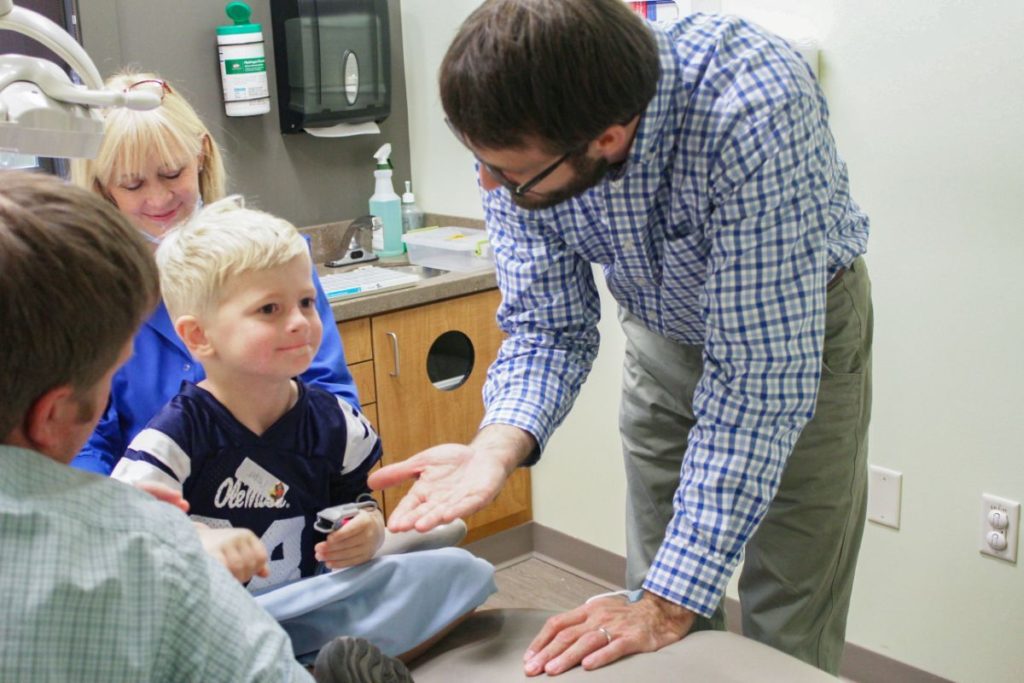As a parent, there are so many things to learn to make sure that your child is happy, healthy, and well cared for. When children are little, you may not be as worried about their teeth, and for obvious reasons: they haven’t grown in yet! But as they get older and their baby teeth begin to grow in, it’s time to start learning how to take care of them. That’s what your team at the Children’s Dental Center is here for!
One of the easiest ways to care for your child’s teeth is to make sure they have access to fluoride. There are many ways to do this, so keep reading to learn why fluoride is essential for your child’s teeth and how you can make sure your child is getting enough.
What Is Fluoride?
You’re probably familiar with the word, but you may not have a deep understanding of what fluoride is or how it works. However, to understand fluoride and its benefits, you also have to understand cavities and their defects.
Cavities
Cavities are caused by a buildup of plaque on the surface of your teeth. When you or your child eat sugary foods, these sugars hang out around your mouth until you brush your teeth. If left long enough, they form a layer of plaque that attracts bad bacteria. These bad bacteria eat the sugars and produce acid waste that can cause a lot of damage to your teeth.
Fluoride Armor
Fluoride is a naturally-occurring mineral that helps to combat cavities and even reverse damage from tooth decay. This mineral works by strengthening your teeth. Think of fluoride as a type of armor that forms a barrier between your teeth and the acid caused by bad bacteria. This armor deflects the acid, considerably reducing the risk of cavities.

Sources of Fluoride
Because fluoride is a naturally-occurring resource, fluoride is all around you. It can be released from soil and rocks, and it even exists in the air you breathe. The kind of fluoride that protects your teeth usually comes from the water you drink.
Water
All water has some trace amounts of fluoride, but it typically won’t have enough to prevent cavities or tooth decay. Since the 1940s, however, we’ve been adding fluoride to our tap water. This practice reduces the risk of decay nationwide. Each time we take a sip of water, we rinse our mouths with another small fluoride coating, which provides an easy way to make sure our teeth stay strong. Fortunately, most places in the United States add fluoride to our tap water which provides a regular source of fluoride for everyone.
Toothpaste
Although the fluoride found in our water systems is extremely helpful in preventing tooth decay, it is not enough. Another great source of fluoride is our toothpaste. Most dentist-recommended toothpaste contains fluoride so that you can strengthen your or your child’s teeth each time you brush. Not all toothpaste contains fluoride, so the next time you’re at the store, make sure you look for a toothpaste with a fluoride label.
Children’s Dental Center
Dental check-ups are yet another source of fluoride. By the age of one, your child should visit one of our doctors at the Children’s Dental Center for their first check-up. During the appointment, one of our dental hygienists will clean your child’s teeth and then apply a fluoride treatment.
This fluoride treatment contains a more concentrated amount of fluoride than you’ll find in water or toothpaste alone, so it is only necessary when your child visits the dentist. However, it is a great way to add an extra layer of fluoride armor to your child’s teeth.
What Is Fluorosis?
Concerned parents are usually excellent researchers. If you’re on the hunt to learn more about how fluoride helps your child’s teeth, you’ve probably also heard about the potential harm that fluoride can cause for young children.
Fluorosis results from an overload of fluoride and looks like small white spots on the teeth.
This condition is rare, but when it does occur it usually affects young children up to age eight. Fortunately, mild cases don’t affect dental function.
You shouldn’t be overly concerned about fluorosis, but we have some tips to help you avoid it. Remember that younger children can’t spit like older children and adults can. This means that they are more likely to accidentally swallow more fluoride than normal, especially when brushing their teeth.
The Children’s Dental Center recommends using a dab of toothpaste the size of a grain of rice when brushing the teeth of a child younger than three. This amount is small enough that they won’t swallow too much fluoride but large enough that it will still protect their teeth from decay.

We’re All Smiles at The Children’s Dental Center!
At the Children’s Dental Center, we know how overwhelming it can feel to navigate dental care for your child. When it comes to helping your child develop healthy oral hygiene habits, however, our team has you covered so you don’t have to worry.
Your child should visit our office by the time they turn one year old, so make sure to call our office and schedule their first appointment today!
